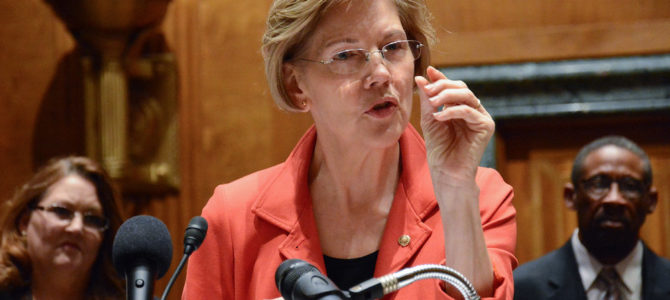“Medicare for All” is a key policy platform for 2020 Democratic hopefuls such as Sen. Elizabeth Warren, D-Mass., and Sen. Bernie Sanders, I-Vt. But, new data suggests “Medicare for All” is not a popular idea to campaign on in crucial swing districts.
A University of Virginia Center for Politics report took data from the 2018 Democratic House outcomes, and concluded candidates who supported “Medicare for All” performed worse than those who did not.
The report claims 2020 is not the first election where “Medicare for All” was an important issue.
“It was also debated extensively during the 2018 midterm elections. By examining the impact of ‘Medicare for All’ on the results of the 2018 U.S. House elections, we may gain some insights into how this issue could affect the 2020 presidential election,” the report reads.
The study found two important conclusions for both Republicans and Democrats to consider when crafting strategies for the 2020 election.
1. Republican leaning districts are less favorable to ‘Medicare for All’ than Republican strongholds
To no surprise, “Medicare for All” is popular among Democratic stronghold districts. However, the table below shows “Medicare for All” is more popular in Republican strongholds and far less popular in districts that are “favorable towards Republicans” or lean towards voting Republican.

According to the data, “Medicare for All” has the least amount of support in districts where Trump won by a margin of 5 to 10 points. In districts where Trump won within 5 points, only 15 percent of voters supported “Medicare for All.” however, in districts Trump won by 20+ points, 44 percent of voters supported “Medicare for All.”
For 2020 Democrats and Republicans alike, this means their most important campaign spots should be in districts that just barely went for Trump. This should come as no surprise, but it makes a greater challenge for Democrats than for Republicans.
Republicans simply must campaign on the destructive economic and social problems that come with “Medicare for All” and abolishing private health insurance. Campaigning on why something is bad is usually easier than trying to convince voters something is good, especially when that something is giving more power and money to the government. The consquences of “Medicare For All” can be easily attacked at rallies or on television ads.
Democrats have a much more difficult task at hand. They must convince swing voters that abolishing private health insurance in favor of a state sponsored “Medicare for All” system is a good solution. They must lay out the data points and make their case to hand their health care over to the government. This may require more door-to-door knocking and mobilization of volunteers and cannot be done as easily in a television advertisement or campaign rally.
2. Democrats lost when their candidates supported “Medicare for All”
This study validates the concerns coming from Democratic hopefuls such as Joe Biden and Pete Buttigieg, who have proposed radical health care options, but don’t believe “Medicare for All” will work for the entire country.
In the table below, the results show how Democratic candidates did worse when they supported “Medicare for All,” compared to Democrats who did not.
Democrats who did not support “Medicare for All” won 72 percent of the time, compared to Democrats who supported “Medicare for All” and won only 45 percent of the time.

This report is a warning sign to 2020 Democratic candidates and primary voters. If Democrats want to see their party represented in the White House, they need to back away from their radical idea of “Medicare for All” and find an alternative plan that attracts swing voters.
This report should also signify to Republicans that their main strategy should be to highlight the issues with a “Medicare for All” program, just as Trump continues his campaign strategy of honing in on radical ideas in swing districts.









